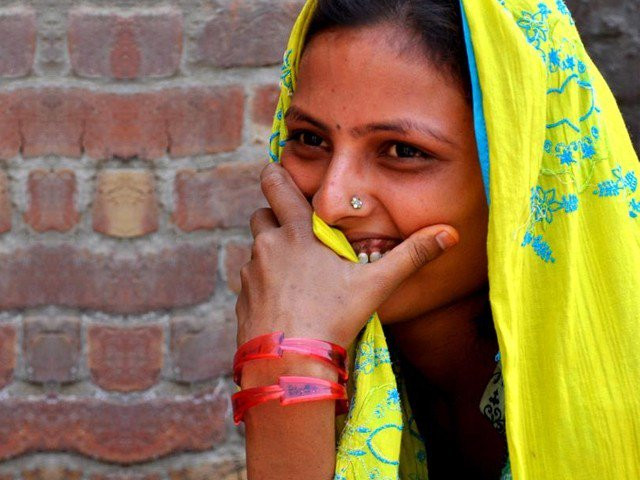Speakers call for menstrual hygiene management
Say a vast majority of women and girls lack access to hygiene products

Say a vast majority of women and girls lack access to hygiene products. PHOTO: EXPRESS
The speakers highlighted the fact that even though half of the population menstruates, there were no existing policies supporting the creation and implementation of proper menstrual hygiene management conditions in Pakistan.
About 100 representatives from government, international and national development organisations, civil society, youth and media convened at the Pakistan Institute of Parliamentary Services, in Islamabad to commemorate Menstrual Hygiene Day observed on May 28 across the world, the statement said.
The day serves as a neutral platform to bring together individuals, organisations, social businesses and the media to create a united and strong voice for women and girls around the world, helping to break the silence around MHM. This year, the global theme of the day is “Education”, it said.
The event was organised by MHM Working Group, a body of almost 20 national and international government, nongovernmental organisations and UN agencies, to raise cognisance of creating an enabling policy environment for prioritising MHM in the programming agendas and to support the government in the implementation of MHM interventions.
Approximately 52 per cent of the total female population of the world, that makes roughly 26 per cent of the total population falls in reproductive age group. Out of estimated 184.5 million people in Pakistan, over 42 million (roughly 22%) are girls who are in the bracket of 10-19 years implying that most of them have started menstruating.
In Pakistan, number of studies conducted on MHM by the working group have revealed various factors causing poor management of menstrual hygiene such as lack of awareness, taboo and beliefs, socio cultural practices, poor access to water and sanitation at home, work and school to provide private and hygienic places for washing and changing of sanitary napkins, lack of and access to affordable sanitary products, as well as lack of facilities for proper disposal of used sanitary products.
The studies also revealed that although menstruation is a normal biological phenomenon, women especially adolescent girls still feel reluctant to talk about it within the families and among themselves throughout Pakistan. Absence of MHM from school or college curricula does leave girls with mythical knowledge about menstruation and related practices.
The non-existence of MHM within the entire socialisation process has important social, cultural and health implications in lower income settings including social restrictions, social exclusion, school absenteeism and drop out and increased vulnerability to reproductive tract infections (RTI) and urinary tract infections (UTI) which may in turn greatly impact women’s lives.
At the event Khalid Hussain Magsi - Chairman Standing Committee on National Health, Services, Regulations and Coordination said “Women and girls miss out opportunities in life because of not being able to handle this part of their life in a dignified manner. If we have to make health and education inclusive and equitable by 2030 in Pakistan, we have to focus on MHM needs of our girls and women. “
The event provided a platform to put a spotlight on an issue which is hardly addressed in Pakistan yet and sadly not all adolescent girls and women have access to the facilities they need to manage their menstrual cycles.
Echoing his words, UNICEF’s Chief of Education Ellen Van Kalmthout said: “Despite Pakistan’s gains in meeting its water and sanitation development goals, we are still failing millions of adolescent girls and young women who do not have access to the most basic necessities for managing their periods.”
As a result of this, and lack of basic knowledge on menstruation, their education suffers, she said. “We all know that many girls skip school during their periods, and that some of them eventually drop out,” she pointed out.
A key objective of the event was to promote sharing and learning of experiences from various interventions being conducted across the country and at the same time engage government to take a more proactive stand to implement policies and fund MHM in Pakistan, said MHM Working Group Pakistan co-chair Hina Kausar according to the statement.
Published in The Express Tribune, July 20th, 2017.












1724319076-0/Untitled-design-(5)1724319076-0-208x130.webp)






COMMENTS
Comments are moderated and generally will be posted if they are on-topic and not abusive.
For more information, please see our Comments FAQ